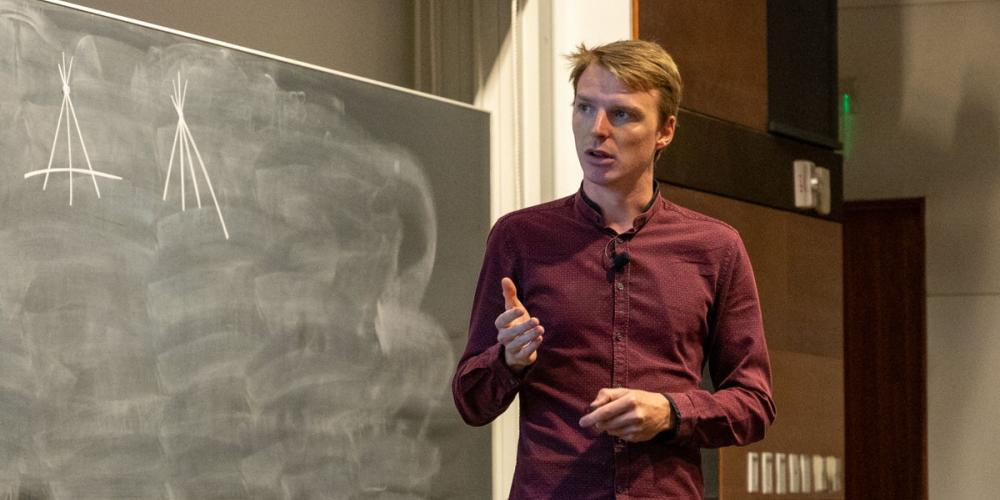A young researcher affiliated with the Vrije Universiteit Brussel (VUB) has solved a decades-old maths problem, achieving ground-breaking results in the so-called Ramsey theory.
The 29-year-old Dr Sam Mattheus solved the question of a Ramsey number, fundamental quantities that reflect the limits of possible disorder and are notoriously difficult to calculate. The most common metaphor is that of a party, and how many people need to be invited to ensure that there will be either a group of three that will know each other or a group of three that are complete strangers.
The mathematical problem had seen no progress in 40 years, but Mattheus succeeded in solving it in just a few months.
"I’d been walking around for years with the idea of using finite geometry to calculate Ramsey numbers," Mattheus said. He convinced the Belgian American Educational Foundation and the Fulbright scholarship programme to finance his research into the Ramsey theory and left for the US, where he worked with Professor Jacques Verstraete of the University of California San Diego (UCSD).
"For a long time, it wasn’t clear how we were going to approach it, or whether it would work at all," he noted. But one day, Mattheus went to Verstraete’s office with an idea. After a couple of hours of philosophising, they got to work. Just a few months later, they would find the key to solving the problem r(4,t).
Mattheus combined his knowledge of finite geometry with traditional graph theory, the traditional way to calculate Ramsey numbers. "The knowledge was there, but the ideas hadn’t been brought together, yet. It was all about the right place and the right time. In a way, we are actually advocating more cooperation within mathematics. Finite geometry can hopefully offer solutions for calculating other Ramsey numbers, as well."
Related News
- Design revealed for Belgian pavilion at Osaka World Expo in 2025
- Genetic factors partly determine risk of Long Covid, new research shows
Mattheus has since been asked to speak at international conferences to explain his findings. In October, Mattheus will return to the Department of Maths and Data Science at VUB. "I’m looking forward to coming back to Brussels with a rucksack full of problems and working further on Ramsey theory with my colleagues."

